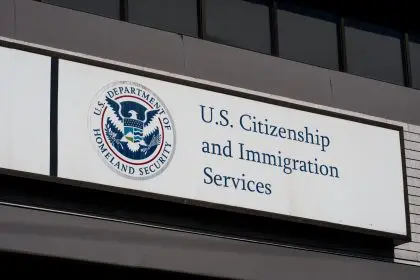A routine trip to the airport turned into a four-day nightmare for a Kansas City nurse, spotlighting persistent concerns about racial profiling in law enforcement and raising questions about accountability in the criminal justice system.
The arrest that shouldn’t have happened
A vacation derailed
Elaine McAlister, 31, was eager to begin her Caribbean getaway last October when Kansas City Airport police officers intercepted her at the departure gate. Within minutes, her dreams of a Jamaican vacation dissolved into a harsh reality of handcuffs and jail cells, launching a legal battle that would extend well into 2025.
The Missouri resident’s ordeal began on October 14, 2023, when officers Kyle Greewalt and Matthew Zils approached her regarding a misdemeanor marijuana charge from neighboring Johnson County, Kansas. Despite presenting both her driver’s license and passport, McAlister found herself in custody, initiating what would become a 96-hour incarceration for a crime she didn’t commit.
A system’s glaring oversights
Red flags ignored
The circumstances surrounding McAlister’s arrest reveal troubling lapses in law enforcement procedures. The officers acted on a Kansas warrant while in Missouri jurisdiction, violating state laws governing warrantless arrests for minor offenses. More concerning was their apparent dismissal of crucial identifying details that distinguished McAlister from the actual suspect.
The most glaring oversight involved the suspect’s distinctive tattoos, which McAlister didn’t have. This discrepancy, along with other physical differences, should have prompted immediate questioning of the warrant’s applicability. Instead, it took four days and the observation of an attentive jail employee to finally secure McAlister’s release.
Legal action and accountability
The incident has prompted McAlister to file a lawsuit in Platte County, Missouri, on January 31, 2025. The legal action targets the Kansas City Airport police, alleging false arrest, racial discrimination, and harassment. The suit emphasizes the officers’ failure to exercise reasonable judgment and questions the protocols that allowed such a misidentification to occur.
McAlister’s case has garnered significant attention from local community members and civil rights advocates, who view it as emblematic of broader systemic issues in law enforcement. As a healthcare professional and community member, McAlister’s standing has added weight to concerns about racial profiling in law enforcement interactions.
Broader implications for policing
A pattern of misconduct
The incident joins a growing catalogue of similar cases nationwide where Black individuals have faced wrongful detention based on cursory similarities or vague descriptions. These patterns have fueled discussions about the need for reformed identification procedures and enhanced accountability measures in law enforcement.
The emotional and professional impact on McAlister highlights the far-reaching consequences of such incidents. Beyond the immediate trauma of wrongful imprisonment, victims often face lingering effects on their mental health, professional lives, and sense of security in their communities.
Moving toward reform
The path forward
McAlister’s lawsuit represents more than a quest for personal justice; it serves as a catalyst for examining current law enforcement practices and their disproportionate impact on communities of color. The case raises critical questions about the safeguards needed to prevent similar incidents and the reforms necessary to ensure equitable treatment under the law.
As the legal proceedings unfold, advocates hope the case will contribute to meaningful changes in how law enforcement handles identification and arrest procedures. The incident underscores the urgent need for enhanced training, stricter protocols for warrant verification, and improved mechanisms for preventing racial bias in policing.
Looking ahead
The resolution of McAlister’s case could establish important precedents for addressing similar incidents of mistaken identity and racial profiling. As the legal system grapples with these issues, her experience serves as a powerful reminder of the human cost of law enforcement errors and the continuing struggle for racial justice in America.
The incident has sparked renewed discussions about the intersection of race, law enforcement, and civil rights in the Kansas City area. Local advocacy groups have pointed to this case as evidence of the need for comprehensive police reform and enhanced accountability measures.
As McAlister’s legal battle proceeds, her story continues to resonate with communities across the country, highlighting the ongoing challenges in achieving equitable justice and the importance of remaining vigilant in the fight against racial discrimination in law enforcement.















